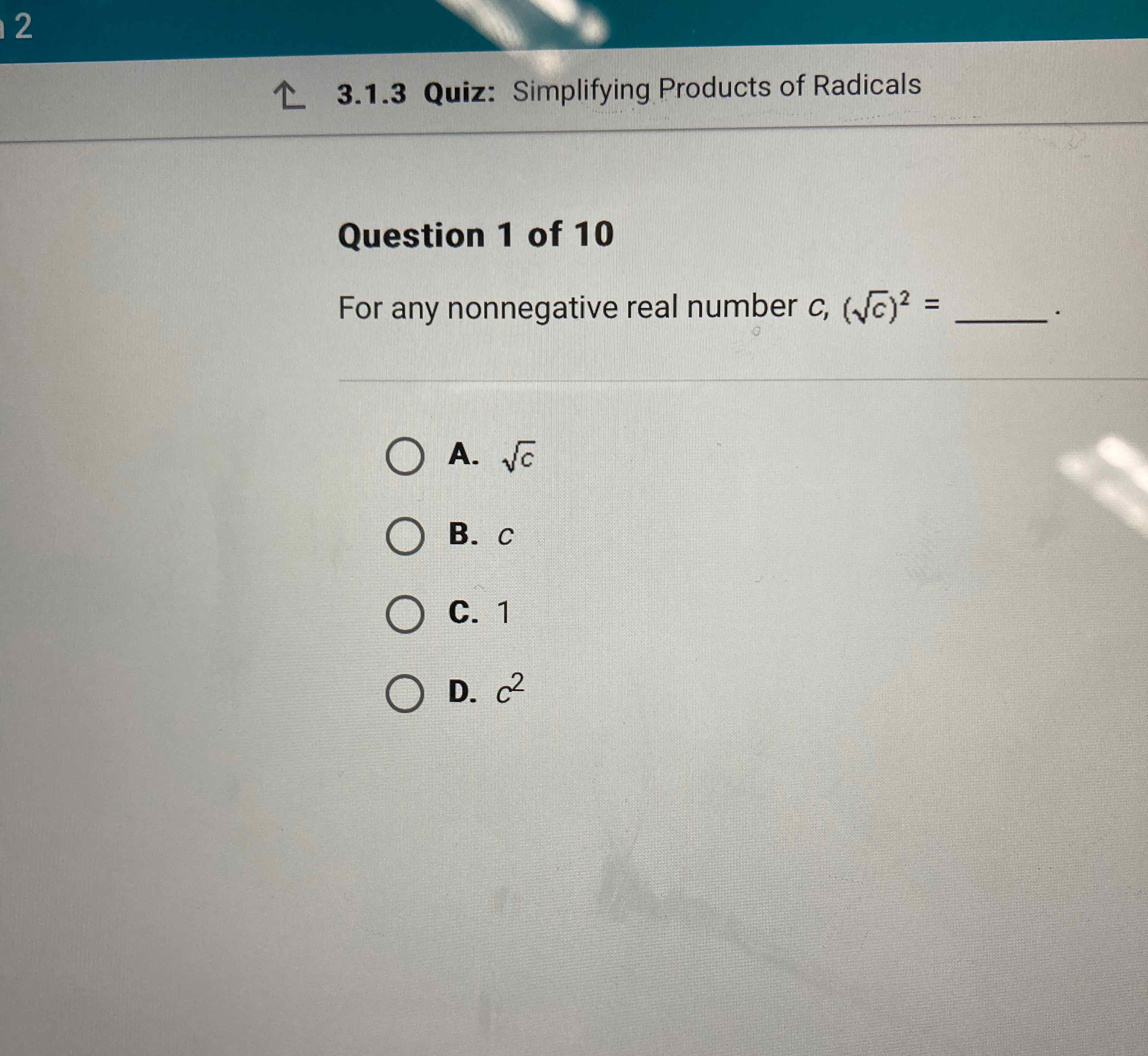AI tutor
Full solution
Q. For any nonnegative real number , _____
- Substitute with : Substitute with a nonnegative number to check the property, let's use . So, should simplify.Calculation: .
- Generalize the property: Now, let's generalize the property. For any nonnegative real number , is the same as because the square root and the square cancel each other out.Calculation: .
More problems from Does (x, y) satisfy the inequality?
QuestionGet tutor help
QuestionGet tutor help
QuestionGet tutor help
QuestionGet tutor help
QuestionGet tutor help
QuestionGet tutor help
QuestionGet tutor help
QuestionGet tutor help

